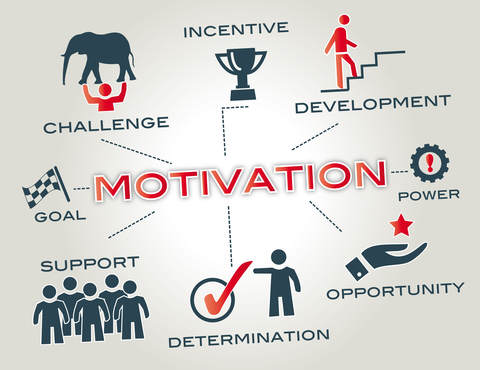We have been writing and speaking for several years about the importance of an individual's context on their performance and decision making. In fact context is a central component of our SafetyCompass® and PerformanceCompass® training programs. When we talk about context we mean the factors including the individual, others, physical surroundings and organizational systems that are present and salient to the individual in the moment and that impact what the person decides to do. The individuals contribution to context includes such things as knowledge, ability, attention, physical condition and emotional condition. Another aspect of a person's context is their current level of motivation but it is important to note that their current level of motivation is also impacted by their context. There are two types of motivation commonly referred to as “intrinsic motivation” and “extrinsic motivation”. Intrinsic motivation (sometimes also referred to as “self” motivation) comes from within the person and is developed over time as a result of success (meaningful accomplishment) and recognition from individuals that the person deems to be significant (e.g. parents, siblings, boss, etc.). Extrinsic motivation is brought about by the desire for and application of external consequences such as money and praise. It would be nice if everyone was 100% intrinsically motivated but the reality is that we are all, for the most part motivated to do well for the sake of self gratification and for the praise and other external consequences that success derives, e.g. we like the money our successful performance generates. It is also important to understand that our level of intrinsic motivation can be impacted by aspects of our context other than money and praise. Think about how your desire to perform can change because of your physical condition. Are you more motivated when you feel good or when you are sick or tired? Are you more motivated when you understand why you are doing something and how you are supposed to do it? Are there some locations and times of day where/when you seem to be more motivated and productive than others? I seem to have a higher level of motivation and success writing blogs and chapters for our upcoming SafetyCompass book in the morning, in a cubicle in the local library than I do in the afternoon, at my desk in my office. Is your motivation to engage in certain actions impacted by what those you work with find important and talk about? Are you more motivated to do things that your boss says are priorities? Do you find yourself more successful and more motivated when you have your workplace organized in a way that makes you feel more comfortable? Are you more motivated to perform a procedure that you understand and agree with than one that is confusing or just wrong? Most of you would probably consider yourselves to be pretty highly intrinsically motivated but if you answered “yes” to any of these questions then you, like me, are also impacted by extrinsic factors in your contexts. So why is this important? If you are a boss or a parent who has responsibility for the performance of others, you can also have impact on the contexts that those individuals work/live in. The greater your understanding of those contexts and the more you “engineer” them for success, the more successful you, and they will be.


